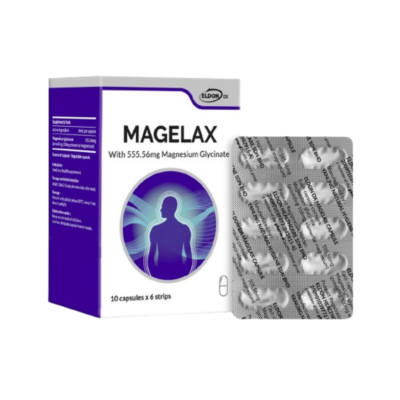This health article has been professionally reviewed by RPh Lee Kern Yeung (018489), a registered pharmacist under the Malaysia Pharmacy Board (LFM).
Migraine is a complex neurological condition, marked by recurring episodes of moderate to severe headaches, often on one side of the head, and commonly accompanied by nausea, as well as increased sensitivity to light and sound (1).
A community-based study on headache prevalence in Malaysia found that migraines constitute a distinct proportion of headaches, with a 9.0% prevalence over the year (2). Migraines can be categorised based on headache frequency (3):
- Low-frequency episodic migraine – Fewer than 10 headache days per month
- High-frequency episodic migraine – 10 to 14 headache days per month
- Chronic migraine – 15 or more headache days per month for over 3 months
According to the Consensus Guidelines on the Management of Headache by the Malaysian Society of Neurosciences (4), managing migraines involves more than just treating the pain during an attack—it also includes preventing future episodes.
In addition to following doctor’s guidance on medications, here are some drug-free ways to naturally relieve or prevent migraines:
1. Identify and address triggers (4) – These may include stress, anxiety, hormonal changes (like menstruation or menopause), and head or neck issues. While not always avoidable, many of these factors can be managed or treated.
2. Diet triggers identification (5) – Avoid common food triggers such as chocolate, alcoholic beverages, coffee, caffeine, citrus fruits, gluten, ice cream and food additives (monosodium glutamate (MSG), aspartame, sucralose). Triggers can vary from person to person.
3. Make lifestyle changes (1) – Incorporate regular exercise, yoga, relaxation techniques, cognitive-behavioral therapy, or biofeedback into routine.
4. Get enough sleep (4) – Aim for 7 to 8 hours of quality sleep each night.
5. Consider alternative therapies (6) – Treatments like acupuncture may help reduce migraine frequency, although the scientific evidence is moderate.
6. Boost magnesium intake – Eat magnesium-rich foods (such as nuts & legumes) or consider supplements. Magnesium is recommended by both the American Headache Society and the American Academy of Neurology as a preventive option for those with frequent migraines (7). Learn more about Magnesium here!
Disclaimer: The information provided is for general knowledge and informational purposes only and should not be considered as medical advice or a substitute for professional consultation, diagnosis, or treatment. Always seek the advice of a qualified healthcare provider with any questions regarding a medical condition.
Reference:
- National Institute of Neurological Disorders and Stroke. (2025, February). Migraine. National Institutes of Health. Retrieved June 11, 2025, from https://www.ninds.nih.gov/healthinformation/disorders/migraine#toc-what-is-migraine
- Alders, E. E., Hentzen, A., & Tan, C. T. (1996). A community-based prevalence study on headache in Malaysia. Headache: The Journal of Head and Face Pain, 36(6), 379–384. https://doi.org/10.1046/j.1526-4610.1996.3606379.x
- Headache Classification Committee of the International Headache Society (IHS). (2018). The International Classification of Headache Disorders (3rd ed.). Cephalalgia, 38(1), 1–211. https://doi.org/10.1177/0333102417738202
- Malaysian Society of Neurosciences. (2021). Consensus guidelines on the management of headache 2021. https://www.neuro.org.my/assets/guideline/Consensus%20guidelines%20on%20the%20management %20of%20headache%202021.pdf
- Gazerani P. (2020). Migraine and Diet. Nutrients, 12(6), 1658. https://doi.org/10.3390/nu12061658
- Linde, K., Allais, G., Brinkhaus, B., Fei, Y., Mehring, M., Vertosick, E. A., Vickers, A., & White, A. R. (2016). Acupuncture for the prevention of episodic migraine. Cochrane Database of Systematic Reviews, 2016(6), CD001218. https://doi.org/10.1002/14651858.CD001218.pub3
- Holland, S., Silberstein, S. D., Freitag, F., Dodick, D. W., Argoff, C., Ashman, E., & Quality Standards Subcommittee of the American Academy of Neurology and the American Headache Society (2012). Evidence-based guideline update: NSAIDs and other complementary treatments for episodic migraine prevention in adults: report of the Quality Standards Subcommittee of the American Academy of Neurology and the American Headache Society. Neurology, 78(17), 1346–1353. https://doi.org/10.1212/WNL.0b013e3182535d0c







